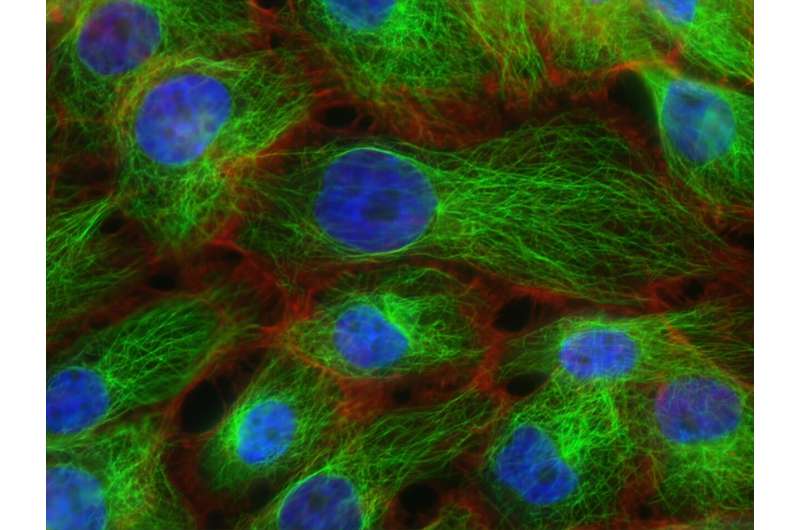
A new study shows targeting a protein in smooth muscle cells can block and decrease buildup of atherosclerotic plaque in mouse models, according to researchers with UTHealth Houston.
The study was published today in Arteriosclerosis, Thrombosis, and Vascular Biology.
Atherosclerosis is a common condition that develops when plaque builds up inside the arteries. Diseases linked to atherosclerosis, such as coronary artery disease, are the leading cause of death in the United States, and nearly half of Americans with the condition don’t know they have it. Atherosclerosis can affect most of the arteries in the body, including arteries in the heart, brain, arms, legs, pelvis, and kidneys.
“We are trying to identify new pathways that cause atherosclerotic plaque buildup, in particular pathways that involve a certain cell type, called smooth muscle cells,” said Dianna Milewicz, MD, Ph.D., lead author of the study and professor and President George Bush Chair in Cardiovascular Medicine at McGovern Medical School at UTHealth Houston. “For many years, researchers have been focused on other cell types, like endothelial cells and macrophages, but more recent studies have highlighted a role of smooth muscle cells in plaque formation. We found that if we block a specific protein in smooth muscle cells, we can effectively block the majority of plaque formation from occurring in an animal model.”
Using a knockout method, researchers fed genetically modified mice a high fat diet and caused the mice to have high cholesterol levels in their blood to drive atherosclerotic plaque formation. Blocking a specific protein called PERK in these mice resulted in an 80% decrease of atherosclerotic plaque buildup in male mice.
“Males tend to have more of this buildup than females. This tells us that blocking PERK in smooth muscle cells is important in plaque formation. Interestingly, this protein is activated in smooth muscle cells by too much cholesterol in the cells,” Milewicz said.
Current treatments to help patients who suffer from atherosclerosis-related conditions include lifestyle and diet changes, medications such as statins and PCSK9 inhibitors, and in more severe cases, procedures to open blocked arteries. However, Milewicz says lifestyle changes may not always help, and current medications have side effects or can be prohibitively expensive.
Researchers are hopeful these findings can translate to clinical care.
Source: Read Full Article
